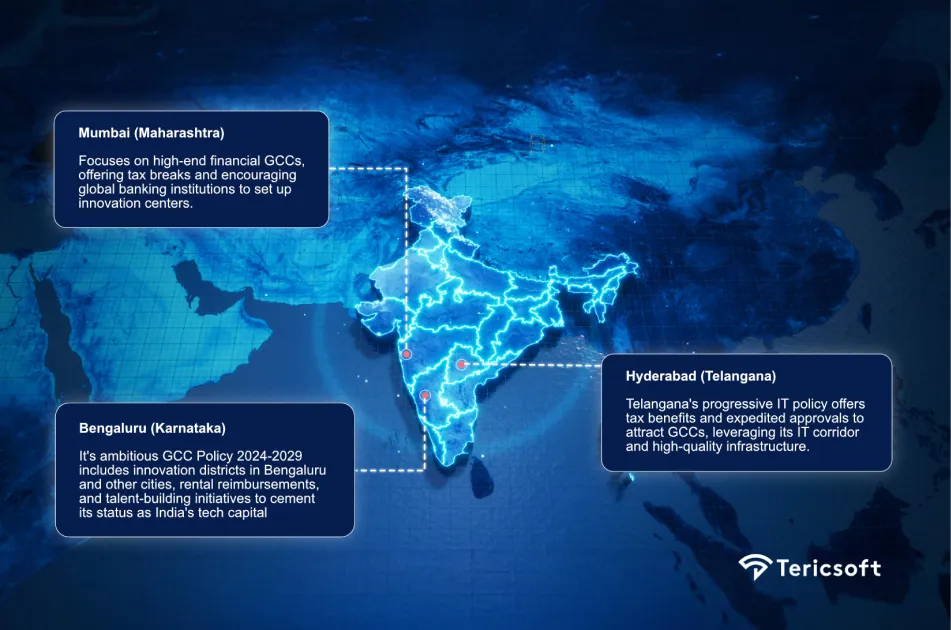
Why do many startup ideas fail before they even launch? Discover how Product Development Services help validate your vision, build MVPs, and reduce risk on your path to a durable, market-fit product.
The emergence of startups often starts with the sudden realization of a gap in the existing process. An innovative idea responds to a need or lack of something specific in the marketplace. However, is that innovative idea significant enough to fetch the startup to the climb to the height of success?
Most entrepreneurs and founder's attachment, overconfidence and naivety drive new ventures up and running, but later these emotions create problems for them. The Bureau of Labor Statistics report mentions that around 20% of new businesses fail within the first two years.
Having an innovative product idea is good, but it is essential to validate those ideas to see the long-term market viability, customer demand and potential for sustainability before investing in full-fledged production. Nearly 4 out of 5 seed-stage startups don’t make it and this is one of the reasons: unable to understand the market demand of the product.
This is where mindset comes into play. Some entrepreneurs are confident about their ideas and are never afraid to take risks because they think failure is the stepping stone to success. That’s true, but what if you could just play the game with a little bit of investment as you climb the ladder of success?
If you are an emerging founder with a revolutionary idea and are either confident that it will be a hit or unsure about its potential, product development services can help you analyze your game and make the right decision.
What are Product Development Services?
You’ve had an amazing product idea for a startup, and you are certain it will be a game-changer. However, you want to be confident that what you are about to build has a market and customers waiting to buy the product. Here’s when you realize the importance of idea validation.
When you test and validate startup ideas, you ensure that you are filling the gap in the market and that your product meets customers' needs and demands. Product development services are essential in validating your innovative idea, determining whether it is a market fit, and visualizing the demand for your product so you can invest more. If not, you know where to put the full stop.
Product development services encompass a suite of specialized offerings to transform your innovative ideas into tangible, market-ready products. In other words, they help give life and structure to the idea brewing in your head. This service covers the entire product lifecycle, from designing prototypes, developing MVP, creating product strategy and roadmap, building infrastructure architecture, and refining the product as per the market’s feedback or requirements.
For example, an emerging sustainable mobility-as-service startup provides sustainable transportation solutions; however, it lacks a robust system to scale its operations. Due to its restricted tech infrastructure, it wasn’t able to use the collected data to its maximum potential and identified the urgent need for technological advancements.
Tericsoft is a product development service provider that has worked with 30+ global clients and delivered over 70 products. Our product development team helped the startup overcome its technological scalability hurdles.
Our product development team helped in restructuring their existing ecosystem with a scalable architecture and deployed big data and analytics tools. Our solution helped boost productivity by 10%-15% and accelerated the real-time decision-making process by 50%.
Product development services employ a structured approach, including market research, prototyping, user testing, feasibility testing, and market tests. This helps reduce risks, improve product market fit, and increase the chances of success.
Importance of Product Development Process in Product Validation

CTO consulting services provide professional advice and strategic counsel in technology-related matters, helping an organization hire a full-service, experienced CTO without a long-term commitment. Solutions involving such offers are best applied in companies facing complex technical challenges that need to be resolved, processes that need to be optimized, or a technology roadmap that needs to be developed. The CTO consultant reviews your present technology stack, advises on digital transformation strategies, and ensures that technology initiatives meet your business objectives in a future-proof and scalable way.
Validating ideas is of utmost importance, especially in the initial days when the resources are limited and the risk of failure is high. Product development service providers work with entrepreneurs and founders to refine and validate the ideas before committing to full-scale production. Here’s how product development services come into the picture:
1. The team analyzes the competitors with similar products, business models, and services.
Similar ideas and concepts are always available in the market, and that too with an established and solid reputation. Thriving in a competitive world like today’s is all about convincing the customer why your product is better, and it can only happen if your product tries to bridge the gaps left unattended in the market. As quoted in Intercom on Jobs-to-be-Done by Des Traynor and Paul Adams: “Emphasize why the existing way does not make sense, why it’s safe to switch to your product, and why they don’t need to worry about leaving the existing way behind.”
“Emphasize why the existing way does not make sense, why it’s safe to switch to your product, and why they don’t need to worry about leaving the existing way behind.”
Product development services help provide a holistic picture of the industry and competitors. By analyzing the competitor’s offerings, the product development team can evaluate market saturation, gaps, pricing models, and positioning strategies to ensure whether the product can sustain the competition and thrive over time.
2. Product developer refine the product’s features and pricing model.
Product developer play a central role in conducting secondary research, including competitor analysis. The team evaluates competitors' products and understands their strengths and weaknesses, which could help in refining the products' features.
For example, after conducting a comprehensive analysis, the team can note the mistakes by learning from competitors' failed strategies or features that didn’t work out. Also, the team understands the pricing models and market positioning to benchmark the strategies, ensuring the product fits with the customer's expectations
3. The software product development company provides a small glimpse of the product before full-scale production.
Product development service providers, like Tericsoft, start by building a prototype and minimum viable product (MVP) to get a holistic idea of the idea in your head. First, a digital prototype is designed to visualize, test, and refine ideas, and it helps reveal issues in the concept that weren’t visible initially.
Then, after getting a heads-up on the prototype, a minimum viable product (MVP) is developed, which is a simplified version of the product that supports major features. MVPs help understand the market’s response with minimal investment, and further iterations can help refine the product based on user experience.
4. The team runs essential reports and conducts analysis.
The team often runs technical feasibility and cost analysis reports to estimate whether proceeding with the innovative concept is technically and economically feasible. A technical feasibility report analyzes whether the current technology stack, tools, and materials can help bring the product to life and whether the tech stack can be scaled as the product's demand increases.
Cost analysis reports include assessing manufacturing processes, labor, materials, and distribution expenses to estimate production and operational costs. If the expenses are exceeded, the team can propose modifications in design or alterations to make the cost more economical.
In product development services, the team of product developers stimulates or runs limited market tests. This helps determine whether customers are willing to pay for the product and what price point and business model work best.
5. The product developers suggests diversion from the original idea.
If the team finds that feedback or validation does not favor the original idea or that it might not be technically or financially feasible, they can recommend pivoting. A pivot includes changing the product’s feature set, targeting a different market, or revising the core idea entirely.
The product development team can help iterate the design and feature set based on the user data collected during the testing and validation stages.
Don't find customers for your products, Find products for your customers
— Seth Godin, Former Dot-Com Business Executive
Understand the Cost of Not Opting for the Product Development Process
Examining project failure case studies can illuminate the most common pitfalls between your initial effort and your final success. Let's explore some of the product failures with valuable lessons, highlighting the importance of proper project planning and research.
1. Quibi
Validating ideas is of utmost importance, especially in the initial days when the resources are limited and the risk of failure is high. Product development service providers work with entrepreneurs and founders to refine and validate the ideas before committing to full-scale production. Here’s how product development services come into the picture:
What Went Wrong?
Their failure began when they failed to understand what their customers wanted due to a lack of market research and innovation. They launched as a mobile-only streaming service that charged a specific fee for subsections for byte-sized episodes and videos. However, they fail to realize that people like to watch episodes on the go.
Even though they had a library of fiction, daily shows, and updates, they forgot to validate if people would pay for a mobile-only service where content is available for free all over the internet. They also failed to add useful features and never tested their MVP.
What is the Lesson Learned?
As a ship lost in the sea, its lack of social sharing features, clear MVP, and stiff competition led to its demise. If only possible, the brand should have performed in-depth market research so that it could include some of its efforts in product development and marketing.
2. Navdy
Navdy’s failure story is the best example of why you must focus on market research and keep your audience at the center of everything. This tech company offered a HUD (Heads-up Display) on the windshield of cards, projecting GPS directions. Even though it feels futuristic, the idea is way ahead of our time to build a profitable business.
What Went Wrong?
The startup’s lack of market understanding and initial struggles in pricing strategy scream loss from the start. First, the customer was not ready to pay more than $799 for a device that provides direction. Even though the prices were slashed, the market was highly saturated with more cost-effective competitors. Plus, most users complained that the product, i.e., the HUD, did not bend with the curve of the windshield and blocked their vision.
What is the Lesson Learned?
Quick market research and validation by launching an MVP software prototype before the production stage could have solved this issue. Moreover, their myopic obsession with creating a parallel navigation ecosystem against Google Maps leads to expensive development and admittance.
The lack of demand/ interest in knowing the customer needs turned the startup into a failed venture, shutting down its operations in 2018. They lost the market game when they invested a lot of money without testing and achieving a decent product-market fit.
How a Technology Partner Like Tericsoft Validate Ideas?
Tericsoft’s product consultants and experts do not leave any stone unturned when it comes to product development services. MVP software product development service combined with insights from research helps in launching a bespoke and strategically positioned product. Here are the phases of our product development process:
1. Planning and Requirement Analysis
The initial phase of MVP software development starts with planning and outlining the clear scope. It defines the objectives, goals, timelines, resources, and potential challenges.
2. Defining Requirements
As a software development company, we plan out the best way to build your product from a software development perspective. We gather essential requirements, like functional and technical, and run a feasibility analysis to see if the requirements are feasible to implement.
3. Design
The design phase includes defining the product’s workflows, project standards, tech stack, and functional capabilities and mapping out the product’s overall architecture. The HLD (High-level design) defines key components, system interactions, and data flows. The LLD (Low-level design) mentions fine details related to individual components and their interactions.
4. Development
Once the design is approved, development starts, and we focus on building an MVP through agile methodology. We adhere to established coding standards and focus on scalable and clean code. Version control systems help in managing and keeping track of changes to the code base. The code undergoes a thorough review to enhance code quality and reduce the risks of bugs.
5. Testing
Our software testers and QA engineers combine manual and automated testing practices to obtain accurate results quickly. Comprehensive system testing includes end-to-end testing of functionality, data flows, and integrations in a dedicated testing environment. This environment replicates the same conditions as the production environment.
6. Deployment and Development
After rigorous testing, we deploy the production environment. Our team performs ongoing maintenance to ensure the product remains functional and up-to-date. We create a well-defined release plan to schedule future releases and use CI/CD pipelines for automated deployment.

The Bottom Line
As a budding entrepreneur or product owner, your mind will be abuzz with product ideas that could change the world. However, if you want your startup idea to be a roaring success, make sure to test and validate your idea.
Idea validation will guide your product development through valuable first-hand customer feedback. It will help you create the right product and meet the market's actual demand. CB Insights report found that 42% of startups fail because of a lack of product-market fit (PMF).
Now, Product-market fit has many variables, such as demand for the product and consumer readiness to adopt it. Achieving product-market fit usually takes time. For example, Google started with just an idea, and it took them 5 years to achieve product-market fit. Having the best technology is part of achieving product-market fit, and it involves iterations, trials, and errors.
Tericsoft is your technology partner for helping you convert your ideas into profitable products. We believe in building long-term partnerships, so our product development strategies include comprehensive continuous market research and the use of micro-service technology to scale the product for competitiveness.
Whether it's MVP software development, web design, infrastructure architecture, or mobile app development, we deliver efficiently, accelerating the process for faster, high-impact releases. With our agile methodology and capable tech teams, we can help you validate your product without having to build an in-house tech team.
Around 6 out of 10 startups face bandwidth issues, and our CTO expertise can help guide your team in the right direction when it comes to adopting technology to boost your business’ success. Do you have a disruptive idea in mind? Connect with us today to build it together!







%201.svg)


